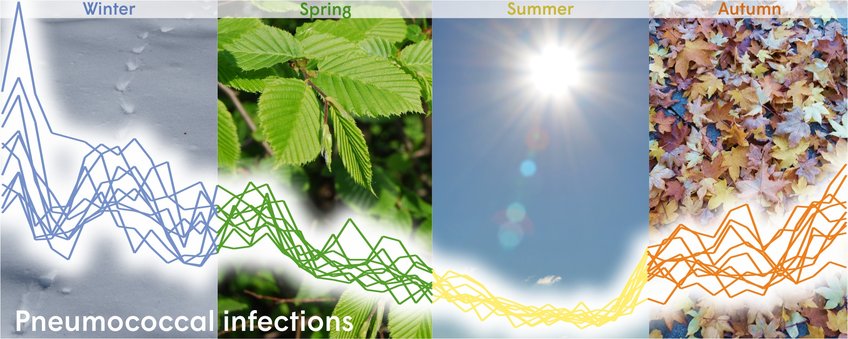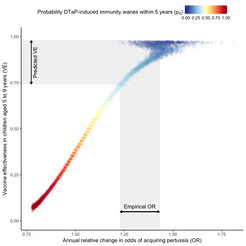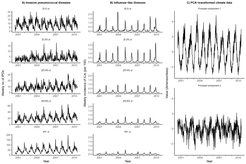
Infectious Disease Epidemiology
The research in our lab focuses on the population biology of infectious diseases, with a view to understanding how individual-level mechanisms of infection translate into population-level dynamics. The core of our research is the use of mathematical modeling and of statistical inference to formalise biologically motivated hypotheses, to rigorously test those hypotheses on long-term epidemiological data, and to provide actionable information for public health.
Vaccine epidemiology

More than two centuries after their discovery, vaccines remain a mainstay of the arsenal against infectious diseases and technological advances in vaccine development will likely continue to extend their scope. Hence, research on the effectiveness of vaccines and on their effects on the epidemiology of the diseases they prevent — that is, the research field of vaccine epidemiology — is essential. We aim to simultaneously elucidate the mechanisms of individual-level protection conferred by vaccines and to quantify their populationlevel impact. Further, we want to translate that research into scientific information for the design of vaccination programs.
Pathogen-pathogen interactions and infectious disease seasonality
Seasonality is an intriguing feature of many infectious diseases. Well-known examples are the different viruses that cause epidemics of respiratory infections (e.g., influenza, common cold) during winter in temperate regions. Although the observation of that seasonality is ancient, the underlying mechanisms remain poorly understood for many infectious diseases of public health importance. Candidate hypotheses include the effect of weather, of seasonal changes in the host behaviour (e.g., fewer contacts among children during school holidays), and of pathogen-pathogen interactions (i.e., a given infection predisposes to — and therefore “imprints” its seasonality on — another infection). In our lab, we aim to formalise and to systematically compare these different hypotheses, with a view to improving the prediction and the control of infectious diseases.


